6. Something Wild (Jonathan Demme, 1986)
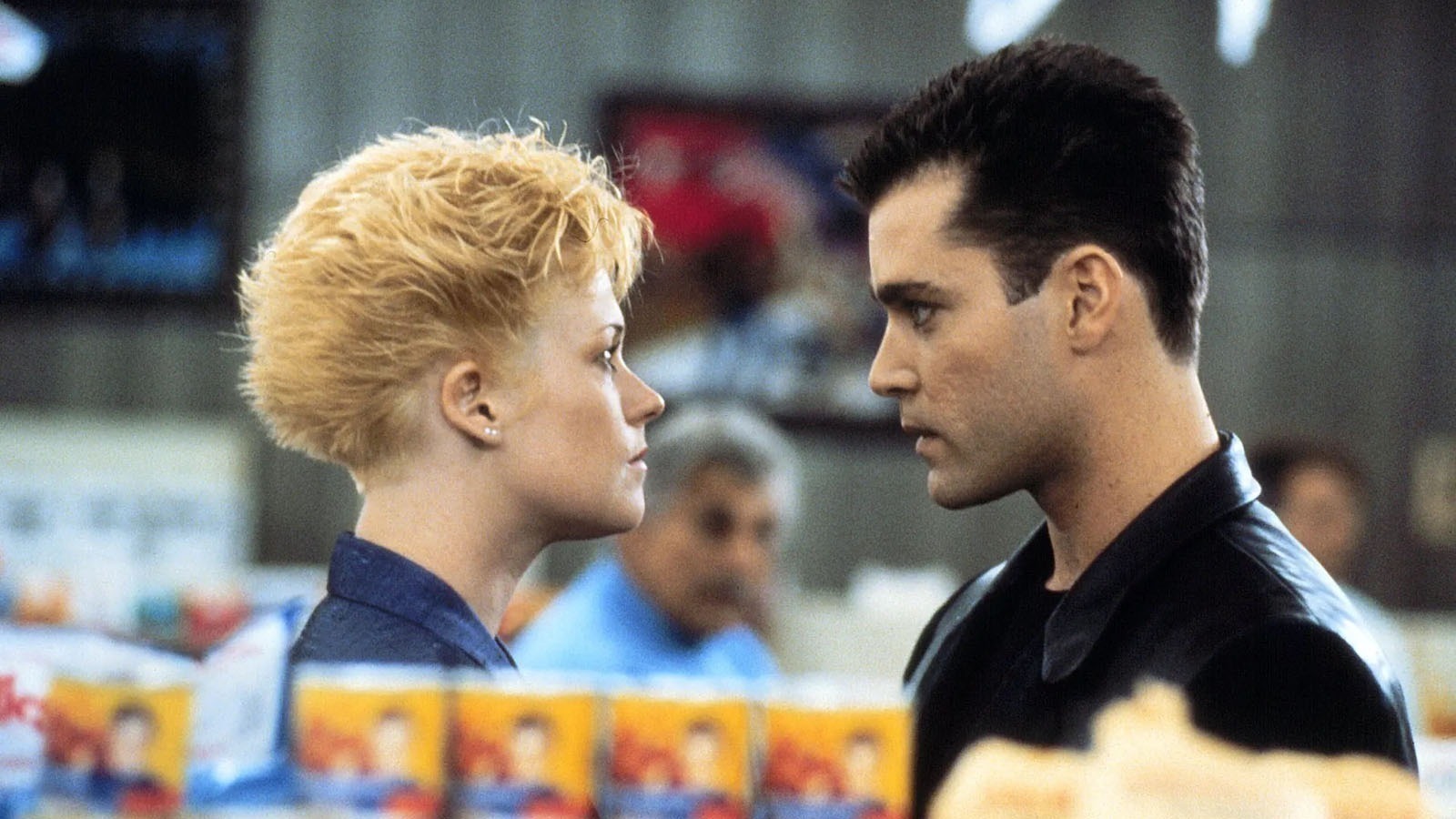
Sensible New York yuppie Charles Driggs (Jeff Daniels) is kidnapped by the bizarre, childish Lulu (Melanie Griffith). They embark upon a road trip which takes them to Virginia, pursued by Lulu’s violent ex-husband Ray (Ray Liotta).
Roger Ebert said of Something Wild: “this is one of those rare movies where the plot seems surprised at what the characters do.” It is the pinnacle of the road movie and romance genres, with a character-driven plot-line harkening back to the ‘40s noirs. Conversely, its colourful mise-en-scène is emblematic of the ‘80s, with strokes of African style, incorporating an impressive reggae, pop and art rock soundtrack.
Whilst Jeff Daniels is a brilliant leading man, Ray Liotta stands out in what is one of his greatest roles. Few actors bested his deep level of terror and menace, at the same time as being effortlessly cool and intermittently funny. Though Something Wild received great reviews upon its release, it still hasn’t been appreciated as one of the seminal pictures of the ‘80s. The film’s director, genre acrobat Jonathan Demme, would later go on to helm The Silence of the Lambs and Philadelphia.
7. City on Fire (Ringo Lam, 1987)
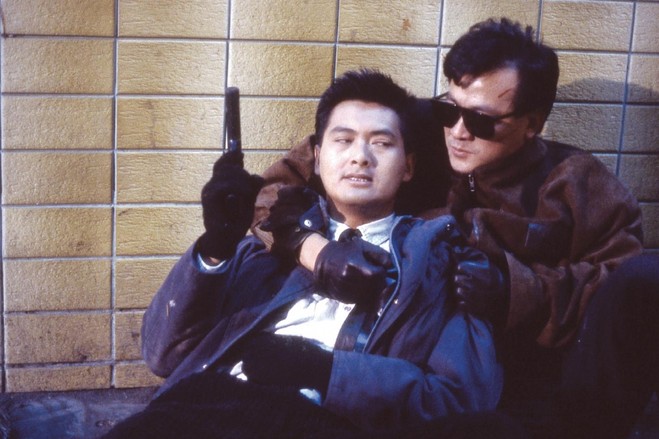
Playful cop Ko Chow (Chow Yun-fat) goes undercover to bring to justice the perpetrators of a jewellery heist.
City on Fire was well-received in Hong Kong upon its release, though it hasn’t been given the exposure in the west it deserves. It served as the main inspiration for Reservoir Dogs. The storyline is virtually identical, as are many of the shots. Such is the commonality, Reservoir Dogs is like an American remake of the film and verges on plagiarism.
Typical of great Hong Kong cinema, the provocative City on Fire boasts dazzlingly-executed, tense action sequences, car chases and unforgiving, jaw-dropping violence, putting American cinema to shame. In addition, with its saxophone score, focused, taut plot, tragic, romantic underbelly and the star quality of the charismatic Chow Yun-fat, the film is unequivocally the height of the heist sub-genre.
8. Drowning By Numbers (Peter Greenaway, 1988)
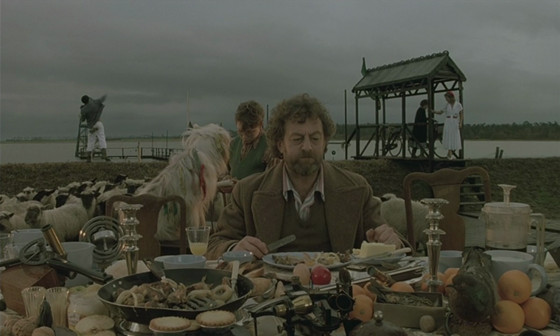
3 generations of self-important women, all called Cissie Colpitts (Joan Plowright, Juliet Stevenson, Joley Richardson), plot to murder their respective husbands. They’re assisted by the skittish Henry Madgett (Bernard Hill), who harbours romantic feelings towards them. The story takes place in rural Suffolk, eastern England.
Drowning By Numbers was shot with astoundingly painterly cinematography, reflecting Greenaway’s background as an artist, his interest in baroque and renaissance paintings. What is more, the symmetrical framing, horizontal camera pans and overall quirky visual style bears great similarity to the work of Wes Anderson, specifically Moonrise Kingdom (2012). Though Anderson hasn’t explicitly listed Greenaway as an inspiration, his influence is obvious, with some shots identical to those found in Anderson’s filmography.
Greenaway has expressed his dislike for most movies, describing them as merely “19th century French novels,” citing the uniformity, predictability and repetition of their construction. By this token, the arthouse Drowning By Numbers is unusual, groundbreaking and original, with very artistic sensibilities and priorities. It not only broadens what a crime piece can do, but what moviemaking is capable of reaching.
Like all of Greenaway’s work, juxtaposed against the sentimental, nostalgic beauty of its aesthetics, a malicious, violent undertone permeates throughout Drowning By Numbers. Furthermore, the screenplay delves into gender politics, criticising patriarchy with a tongue-in-cheek bluntness most writers wouldn’t have dared communicate in the ‘80s. Whilst being essentially ignored today, even in his native England, Greenaway’s films are gems for cinephiles to unearth. Drowning By Numbers ranks as one of his most accomplished and interesting titles.
9. Violent Cop (Takeshi Kitano, 1989)
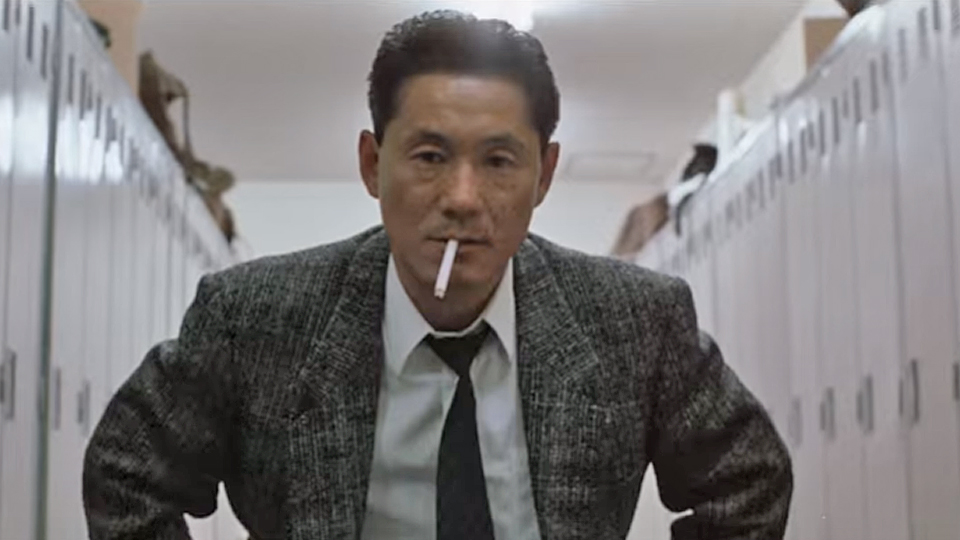
Yokohama detective Azuma (Takeshi Kitano) is determined to locate the criminals responsible for the death of his friend and colleague Iwaki (Sei Hiraizumi). Iwaki was involved in clandestine drug-dealing and his sister is kidnapped after his demise.
Kinji Fukasaku (Battles Without Honour and Humanity) was originally set to direct Violent Cop, but was forced to step down due to scheduling conflicts. He passed the reins to ‘Beat’ Takeshi Kitano – only known as a standup and TV comedian at the time. Kitano extensively rewrote the script, delivering a directorial debut that would set the high standard for his later yakuza classics.
Likewise, Kitano’s acting establishes himself as the Japanese Clint Eastwood, exemplifying the machismo and laconism of paradigmatic action stars. Tonally, he spawns his unique blend of neo-noir, dry humour, nihilism and Zen reflection. Like his idol, Jean-Pierre Melville, he reappropriates and mix-tapes the tropes of American gangster movies for a distinctly regional and idiosyncratic feel. Importantly, Violent Cop’s incendiary climax is one of the most riveting to be found in the crime genre.
10. Kill Me Again (John Dahl, 1989)
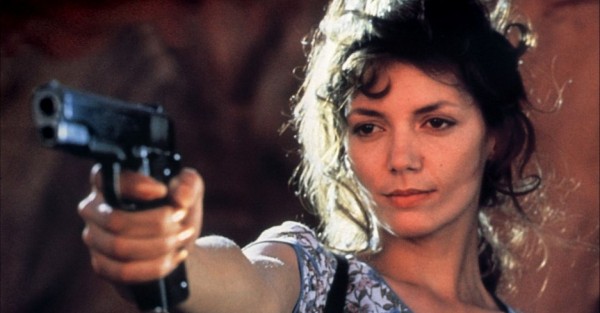
Faye (Joanne Whalley) and Vince (Michael Madsen) pull off a successful robbery, but Faye nabs the money and escapes. With Vince in hot pursuit, Faye hires Reno P.I. Jack Andrews (Val Kilmer) to help her fake her own death.
John Dahl’s debut is endowed with a classic, lean noir storyline of double-crosses, a femme fatale, mobsters and plot twists. Its classicism is reminiscent of Jim Thompson’s novels, particularly The Getaway. Like an item of pop art, it’s styled with Americana visuals: neon casino lighting, neo-western costumes and desert landscapes as wild as its characters. Screen icon Michael Madsen births the understated bad boy persona he would capitalise on throughout his career.
His spirit mirrors the film itself, which signifies the instigation of the neo-noir explosion in the ‘90s. Today, John Dahl no longer directs feature films, instead focusing on guest directing TV series. Kill Me Again proves that he was as unique a crime auteur as the Coen brothers, sadly lost to contemporary Hollywood. Dahl studiously sculpted a stylish, intertextual hardboiled universe which extended into his other notable features: Red Rock West (1993) and The Last Seduction (1994). Kill Me Again is an eminent genre ride that hits all the right marks and more for a crime cinema aficionado.